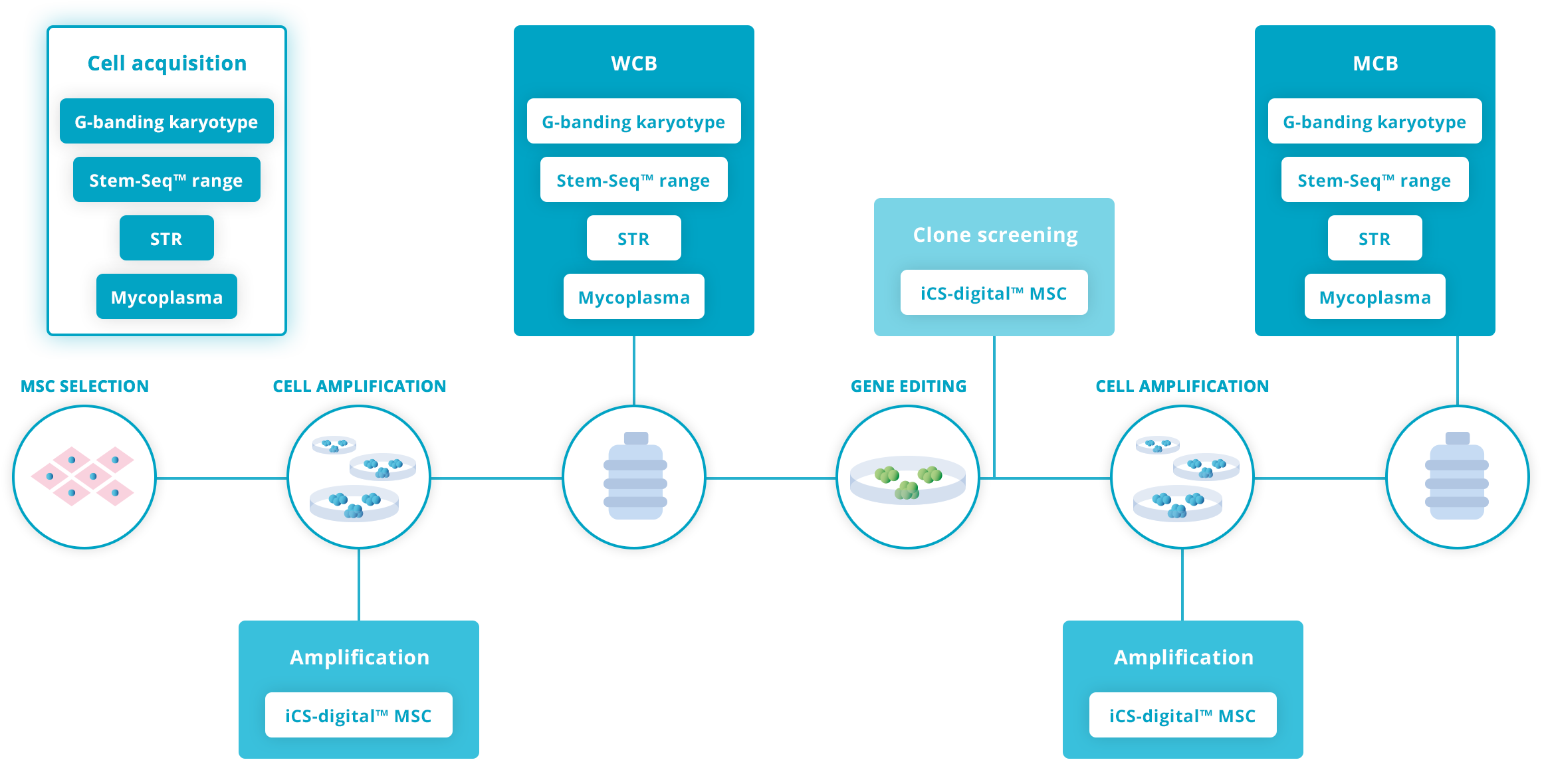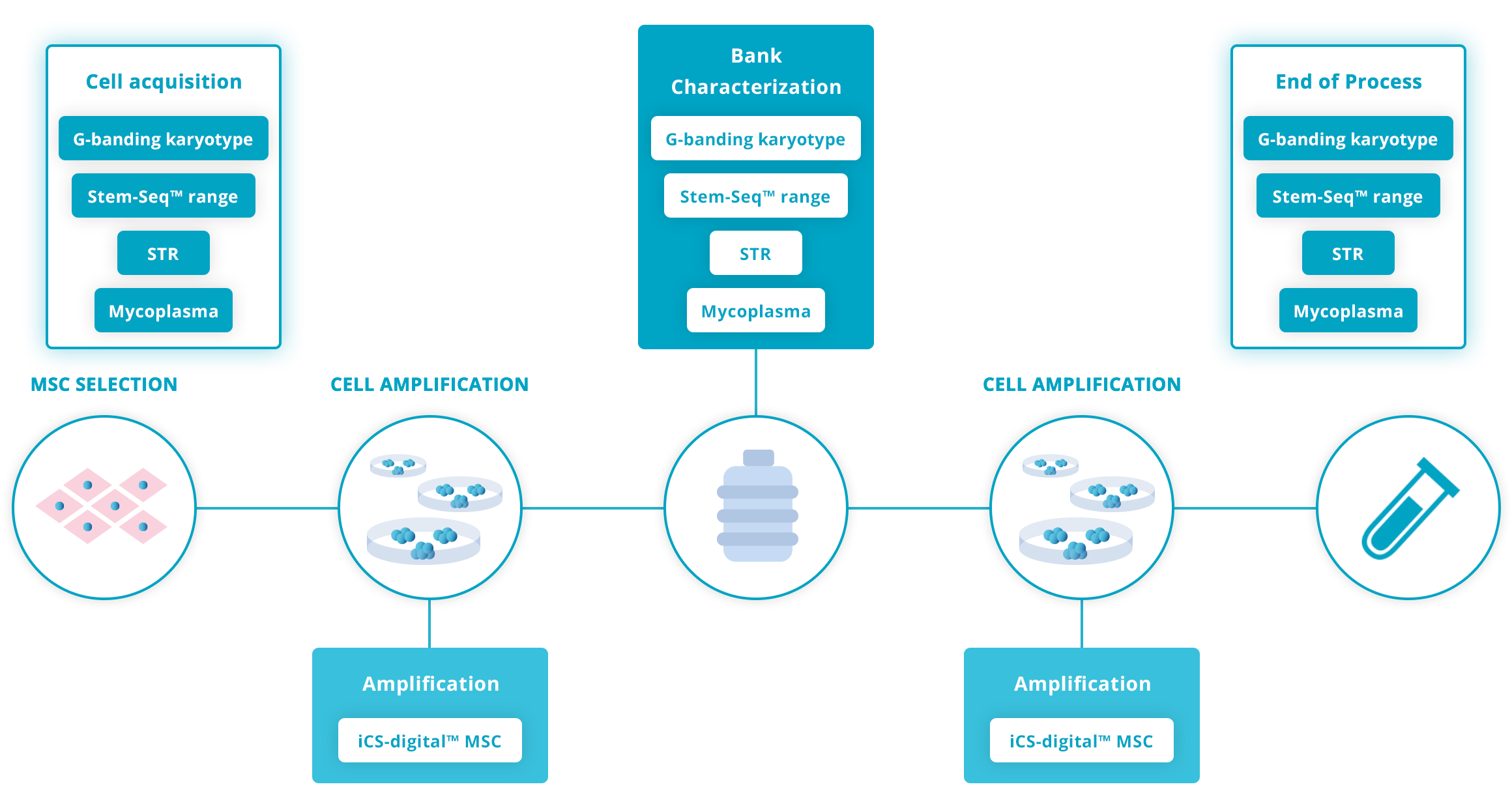> Range of assays > Genomic stability: Karyotyping assays > iCS-digital™ MSC
iCS-digital™ MSC:
fast and cost-effective genomic assay
Detect over 80% of recurrent abnormalities in hMSCs in record-breaking time!
Genomic abnormalities can lead to the potential development of tumors in patients and reduce the efficacy of MSC treatments (Neri, 2019). Traditional G-Banding karyotyping is helpful in providing an exhaustive structural and numerical variant analysis. However, it can be long and difficult to organize. This led Stem Genomics to develop a specific solution for research scientists working on hMSCs.
Fast, sensitive and cost-effective solution
iCS-digital™ MSC has been designed to capture 80% of abnormalities found in MSCs.
We carried out an exhaustive meta-analysis of genomic abnormalities and referenced about 300 genetic abnormalities in hMSC lines. We then used this data to design our own assay: a set of 24 probes optimized to target all human chromosomes.
Our digital PCR-based solution enables rapid and cost-effective screening for chromosomal abnormalities, delivering results in just 3 days.
iCS-digital™ MSC can also complement a process already in place and bring an extra layer of precision to your QC.
iCS-digital™ MSC key specifications at a glance
Human MSCs
After isolation
During cell expansion
Before banking
gDNA
Cell pellets
Room temperature
Dry ice
>80% of recurrent abnormalities
>20% (depending on sample quality)
2-3 days after sample reception
Practical testing guidelines
Recommended guidelines in terms of genomic stability advise checking the cells during their time in culture but also screening clones after any stressing process (reprogramming, gene editing, etc.) and during banking. It is also advisable when a new line is acquired.
Click on the graphs below for more details

Amplification
Clone screening
Amplification

Amplification
Amplification


